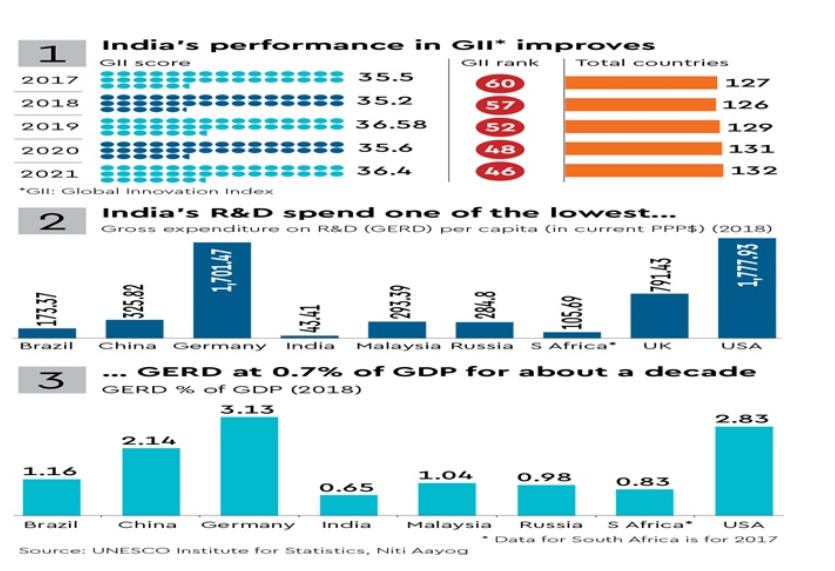Table of Contents
”UPSC Prelims Bits For Today” is every day published in the morning between 11:00 AM to 12:00 Noon and contains selective current affairs articles. ”UPSC Prelims Bits For Today” covers various topics from UPSC Prelims Syllabus and is very helpful and time managing for UPSC Aspirants. The framing of this daily current affairs compilation article is easy to read and understandable also.
In the ”UPSC Prelims Bits For Today” article, we focus on UPSC Preliminary exam-oriented current affairs covering various sections from leading National Newspapers, PIB, and other various official sources.
Supreme Court on Aravalli Conservation
Aravalli Conservation: Why in the News?
Last week, the Supreme Court’s (SC) move to limit states’ ability to change land use for forests or deemed forests comes as a timely booster for conservation.
Aravalli Conservation: What is the Matter?
The present matter has its origins in property owners in the Aravali forests challenging an order of the National Green Tribunal prohibiting non-forest activities in the lands covered under the PLPA special orders, saying that such construction and other activities were in violation of the FCA.
Aravalli Conservation: What Supreme Court Ruled?
- Last week, after hearing a matter concerning the degradation of the Aravalis in Haryana, an SC bench ruled that the land protected by the special orders issued under Section 4 of the Punjab Land Preservation Act (PLPA) 1900 “have all the trappings of forests land” as covered by Section 2 of the Forest (Conservation) Act, 1980, or FCA.
- So, even though owners of private land classified as forests under various legally-accepted definition of forests could approach the state government for approval for non-forest use, the state government can’t, by itself, give such approval and must seek clearance from the Centre.
- The apex court thus directed the concerned authorities in Haryana to not only demolish illegal structures on the land under PLPA special orders, but also restore status quo ante through reforestation programmes.
Aravalli Conservation: What Next?
- The Aravalis are critical for the national capital region in terms of sustainability, not just as a haven for biodiversity, but also groundwater recharge.
- The SC ruling should give the National Capital Region Planning Board (under the Union housing and urban affairs ministry) a reason to review its draft Regional Plan 2041 that erases key protection for the Aravalis, other forests in the NCR and ecologically important water systems, including limits on the area that can bear construction in the conservation zones.
National Commodity and Derivatives Exchange (NCDEX)
About NCDEX
- National Commodity & Derivatives Exchange Limited (NCDEX/ the Exchange) is a professionally managed on-line, multi commodity exchange focusing on revolutionising India’s agricultural sector.
- NCDEX is India’s largest agricultural derivatives exchange with a market share of 75% in agricultural derivative contracts for the Financial Year ending March 2021.
- NCDEX was incorporated on April 23, 2003 as a public limited company and commenced operations on December 15, 2003 as a recognised association under The Forward Contracts (Regulation) Act, 1952.
- The Exchange became a deemed recognized stock exchange under the Securities Contracts (Regulation) Act, 1956 under the regulation of Securities and Exchange Board of India (SEBI).
What does NCDEX Do?
- It serve as an efficient platform for Price Discovery and Price Risk Management and this has been consistently demonstrated over the past two decades.
- It offer a diverse range of products such as commodity futures, options in goods and index futures that open a plethora of opportunities to cater to the needs of various sets of participants in the Agri value chain.
- Currently, NCDEX offers derivatives contracts on 11 agricultural commodities reflecting India’s identity as the world’s leading producer of agricultural commodities, and the NCDEX prices are widely recognized as international benchmark prices.
Gross Expenditure on Research and Development (GERD)
What is GERD?
Gross domestic expenditure on R&D (GERD) includes expenditure on research and development by business enterprises, higher education institutions, as well as government and private non-profit organisations.
India and GERD
- While India’s rank in the global innovation index (GII) has improved to 46 in 2021 from 60 in 2017, its gross expenditure on research and development (GERD) is one of the lowest among comparator economies, at just $43.41 per capita.
- India’s GERD has remained at around 0.7% of GDP for about a decade, much lower than China’s 2.14 and Brazil’s 1.16%. Therefore, remains stagnant.
- In contrast, Brazil spends $173.37 per capita.




 TSPSC Group 1 Question Paper 2024, Downl...
TSPSC Group 1 Question Paper 2024, Downl...
 TSPSC Group 1 Answer key 2024 Out, Downl...
TSPSC Group 1 Answer key 2024 Out, Downl...
 UPSC Prelims 2024 Question Paper, Downlo...
UPSC Prelims 2024 Question Paper, Downlo...
